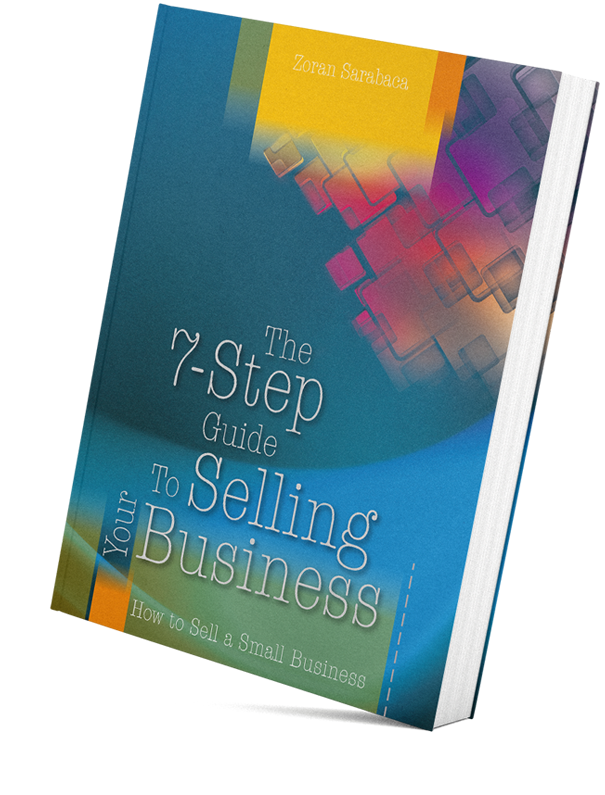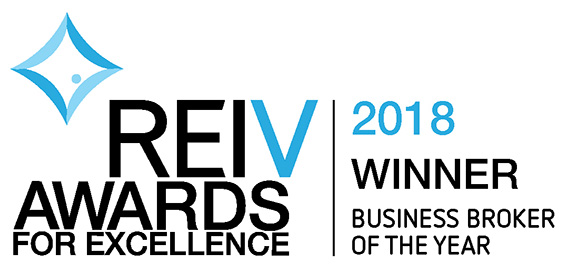Selling a business can be a confusing and complicated process and for most people a once in a lifetime experience. Spending 15 minuets of your time reading through this section of the site will give you excellent information on how to prepare and what to expect.
1 – Decision and Research
Your decision to sell could be initiated from all different types of circumstances.
Whatever the reason to sell your business is; retirement, change in your private or business circumstances, decision to change your lifestyle or anything else, make certain you have explored all the alternative options and that you are making an informed decision.
Get a good understanding of the business sale process and the business market, understand the value of your business and set a realistic price.
Your accountant, solicitor, business adviser or financial planner can help a great deal with all of this. This step is probably the first time you will get in touch with a business broker or agent. This is probably where you are at the moment as well.
Engaging into an informative conversation with a business agent can give you a very good idea of what price you can get for your business and how the process works. Most agents will provide free business appraisals. The business agents price is based on what they think somebody will pay for the business not on book value.
It is not uncommon for the opinions of your accountant and business agent to disagree when it comes to pricing of the business for sale. Don’t get discouraged by this, get everybody to clearly explain to you how did they arrive to their price and why. The better informed you are, the better decision you are likely to make.
Consider all financial, legal and emotional issues prior to putting your business on the market. Failing to do so can cost you time as well as money.
Costs involved in selling the business don’t stop at fees and charges for advertising and professional services, if the sale is not undertaken properly and the owner takes their attention away from running the business, loss in revenue and profits can be measured in tens of thousands of dollars.
There is also the danger of losing crucial staff or customers if the news of selling your business leaks out, which will almost definitely create further losses.
Because of all this it is crucial not to “experiment” by putting the business on the market unless you are certain that it is the best line of action to take.
Once you decide to sell your business you must do this efficiently and for best price possible.
A good business agent can definitely do this for you.
2 – Choosing the Business Broker
As a seller, you have to be very careful whom you select to sell your business.
Engaging the wrong agent could mean loss of time and money even compromising confidentiality, especially if you are required to enter into an exclusive agreement for a period of time.
Choosing the right agent will mean a stress free process with great results. You need to select an agent or a broker that won’t just list your business and run the ads and then send the potential buyer to you to deal with them.
You need an agent who will help you prepare the business and yourself, who will lead you and assist you in all steps of the process, who can locate the buyers and closely cooperate with you in order to achieve the best results.
Following are several points that will help you make the right choice.
Interview questions
- Ask all the agents the following questions and then determine the best person for the job.
- How are they going to help you prepare yourself and your business for sale?
- How will they help you during marketing, buyer’s introduction, due diligence and negotiation?
- How are they going to locate the buyers?
- Are they available for after hours meetings if necessary?
Check the existing clients
Lets face it, every business has several good references and if you ask for referees these are what you are going to get. So how do you check your agents competence, reliability and honesty?
The best way is to get from the agents website a list of 5 to 10 clients they are currently selling businesses for and ask them to provide you with contact details for those businesses. This is probably the most accurate way to see what kind of service and subsequent results you can expect from the agent.
This may involve a bit of time since the agent will have to ask permission from the seller for you to contact them and may also involve signing of a confidentiality agreement to protect the seller, but it is definitely worth it.
How quickly the agent does this will also give you a very good indication how much he values your business.
Exclusive contracts
Be aware of long excusive contracts. If the agent claims to have buyers looking for your type of the business and are demanding a six month exclusive contract, ask why do they need six months to contact existing buyers? Do they really have the buyers or just using this “line” to get the listing?
Locking yourself into a long exclusive contract with the wrong agent can create a lot of trouble and account for a lot of lost time and opportunity.
Check their business knowledge and experience
Talk to the agent about their business knowledge and experience. It would be very hard for somebody to help you prepare for the sale and sell your business if they don’t have fundamental business understanding.
The fees and charges
Some agents charge up front fees, some don’t, and it depends on the agency as to how much they will actually charge. You shouldn’t make your decision on which agency to represent you on the grounds of how much they charge you. An agency that has a higher engagement fee or commission may be able to get you more for your business than somebody who charges you nothing. You should choose an agent that you feel will be able to do the best job for you and your business.
3 – Preparation for Sale
Businesses need to be prepared in a way that will present itself to potential buyers completely and transparently, but without giving away any of the business secrets.
All books and records need to be brought up to date, and ready for potential buyers inspection (Not after the acceptance of the offer)
All loose ends need to be addressed and tidied up. For example, lets say the business is not struggling from a cash flow problem and has a very good customer base, however some of the customers are paying their bills more then 30 days after invoice even though payment terms are 7 days.
This is simply happening because no one is really enforcing strict payment terms since these customers always pay. If this is left untouched, to potential customers this may look as potentially bad customers or even bad debts and could affect the business price.
A Sales Memorandum needs to be prepared outlining everything needed for a potential buyer to assess the business. The following information is to be included:
- Brief description of the business and it’s history
- Description of customers and markets
- Description of products, services and pricing
- Business suppliers description
- How the business generates new business (Sales and Marketing)
- Description of premises and lease terms
- Financial highlights for at least 3 years
- Employees and wages explanation
- Assets owned by the business that are for sale with the business
- Explanation of contracts with customers and suppliers
- Any current issues
- Strengths of business
- Potential for future expansion
- Reasons for sale
- Asking price
- And any other information relevant and necessary for buyers assessment of the business
In addition to preparing your business for sale, you need to prepare yourself.
You have to have clear answers on following 3 questions:
What is your entry point, your asking price and terms for sale?
What is your exit point, minimum acceptable price and terms?
What you will do if you can’t reach your minimum acceptable terms of sale or what is your alternative to sale of the business?
For example:
Your maximum price based on profits of the business could be one million dollars, and for this price you are prepared to stay with the business for one year to assist the buyer. The first 3 months are to be part of the business price then for the next 9 months an annual salary of $120,000.
Your exit point could be $900,000 for the business and no free period during change over with minimum annual salary of $90,000.
You alternative to selling the business if you cannot reach a price higher than your exit point could be to employ advisers and put the business under management.
4 – Marketing
After you and your business are prepared and ready, it is time to start looking for the potential buyers.
Depending on what type of business you have, the following are some of the ways that Xcllusive may market your business. Please note that not all of these will be used for all businesses.
- Xcllusive website listing
- Database Burst: Your business will be sent to our growing group of registered buyers. Currently at 19,000+ buyers.
- Advertising on some of Australia’s best business for sale websites
- Large network of professionals will be advised of the new listing
- A list of companies will be made that can be potential takeovers of your business and given to you for approval, then contacted.
- Advertising in industrial papers, magazines and local newspapers.
- Video advertising
- Cold Calling
5 – First Contact
Prior to giving any information to potential buyers they will be asked to enter into a confidentiality agreement.
This agreement is a legally binding document and by signing it buyers are agreeing to not disclose to any other parties or to use to the information given to them about your business to give them a competitive advantage.
6 –Business Presentation
Sales Memorandums prepared by Xcllusive will give excellent information and understanding to the potential buyers of the business on offer.
However buyers will want to inspect “going concern” and ask some additional questions to the owner.
Initial meetings with the owner can be arranged outside business premises or outside working hours. Eventually buyers will want to inspect business operations and to be given a tour of the facilities.
A Xcllusive agent will always endeavor to accompany buyers for every inspection or meeting with the owner to assist and guide the process.
7 – Offer
Offers are normally received in writing in the form of a letter of intent and include the following:
- Name of the buyer and the date
- Purchase price
- Time frame for the settlement
- Required owners assistance during the changeover, time and nature of their involvement
- Competing trading restrictions for the owners
- Exclusion from purchase, if any
- Conditions the offer is subject to
All offers will be communicated to the vendors.
If the offer is acceptable to the vendor, a time will be organised for the buyers due diligence (Step 9)
If not, the next step is negotiations.
8 – Negotiation
Fortunately for all involved in buying and selling a business, businesses by nature are very complex and flexible which creates room for negotiation.
The best way to do this is not to manipulate other parties or use tricks and techniques but to enter into a communicative and creative process. Get to understand the buyers situation, present clearly your situation to the buyer and reasons why you cannot accept the offer and then work hard to attempt to create the deal and agreement which can satisfy both parties needs and circumstances.
Having your entry and exit point and knowing your alternative to sale of the business will be of great assistance at this point. This will help you negotiate with certainty, control, confidence and without stress.
Accepting the buyer’s offer does not mean that the business is sold. The business should stay on the market and introductions and negotiations with other buyers should continue all the way until a deposit is taken (for exclusive negotiations and Due Diligence) or a contract of sale is entered into with one of the buyers.
9 – Due Diligence
Only after you accepted a buyers offer you should engage your accountant, solicitor and business adviser to help you assist with the buyers investigation and verification of books and records of the business.
At this stage of the investigation you need to disclose and make available for closer inspection all applicable, but not limited to, following records:
- Contracts for sale of the business
- Financial records
- P&L for last three years
- Bank statements
- Tax returns
- Proof of past sales
- Proof of past purchasing
- Current balance sheet
- Employment contracts and remuneration amounts
- Property Leases
- Lease and rental agreements for any equipment and assets
- Software licenses
- Stock levels
- Asset registry
- Customer contracts
- Supplier contracts
- Joint venture and partnership agreements
- Trademark registration
- Insurance policies
- Pending quotations
- Customer database
- Any Up front payments received
10 – Exchange
The Contract for the sale of the business with conditions agreed to by you and the buyer is signed.
At this point you have entered into a contract for sale of the business which means that the buyer is committed to purchasing the business and the seller is committed to selling it.
No parties past this point can change their minds regarding any component of the transaction, except with agreement of the other party.
11 – Settlement
Standard time between the exchange and the settlement is 4 to 6 weeks however it can be agreed to be longer or shorter (sometimes even on the same day).
Payment is made on this date to the vendor for the agreed amount less the deposit already paid. The deposit is released from the trust account and paid into the vendors account less agent’s commission and any other fees.
On settlement ownership of the business and all of its assets are transferred to the buyer and from this date all the profits or losses of the business belong to the new owner.
All employee entitlements (Holiday leave, long service leave etc.) to this date will be the responsibility of the previous owner of the business and the new owner of the business will re-employ all the staff.
Lease of premises that the business is occupying will be reassigning to the new owners or their company as well as all rental agreements and all leasing arrangements. This will also happen to all licenses, business name, phone numbers and intellectual property that is part of the business sale.
Step 12 – Change over
After settlement, if so agreed, the previous business owner will remain with the business for an agreed period of time without pay in order to assist the buyer with training, operations, introduction to customers and suppliers.
In some cases the owner will stay past this time in a specific role or stay engaged in the business in consultancy role or similar for a determined payment. All of these options are negotiable and are normally addressed in the offer and negotiation stage of the buying of the business.
- Find out how to sell your business
- Find out the costs involved in selling a business
You Deserve The Best Price For Your Business
Selling your business is the ultimate reward for the risks and hard work that you have put in to your business for so many years. It is crucial to do it right the first time, because you will not get a second chance.
FREE APPRAISAL CALL US TODAY
Syd: (02) 9817 3331 Melb: (03) 8560 0524 Bris: (07) 3088 6639 Adel: (08) 8472 3331 Per: (08) 6311 3331
Or simply fill out the form below and we’ll get back to you as soon as possible.
Our Service Locations
| NSW | QLD | WA | VIC |
|---|---|---|---|
| Sydney | Newcastle | Central Coast | Wollongong | Maitland | Tweed Heads | Coffs Harbour | Wagga Wagga | Albury | Port Macquarie | Tamworth | Dubbo | | Brisbane | Gold Coast | Sunshine Coast | Townsville | Cairns | Toowoomba | Mackay | Rockhampton | Bundaberg | Gladstone | Maryborough | Mount Isa | | Perth | Bunbury | Busselton | Geraldton | Albany | Kalgoorlie | Boulder | Karratha | Yanchep | Port Hedland | Broome| Esperance | Melbourne | Geelong | Ballarat | Bendigo | Wodonga | Melton | Shepparton | Mooroopna | Mildura | Traralgon | Warrnambool| Bacchus Marsh| |
| SA | TAS | NT | ACT |
| Adelaide | Mount Gambier | Victor Harbor | Goolwa | Whyalla | Murray Bridge | Port Lincoln | Port Pirie | Port Augusta | Hobart | Launceston | Devonport | Burnie | Ulverstone | Darwin | Alice Springs | Canberra |
Disclaimer: The material on this site is made available for the purpose of providing information only and not as professional advice. We do not guarantee it is free of errors or omissions. Your personal position and circumstances have not been taken into consideration. Click here for the full disclaimer.





